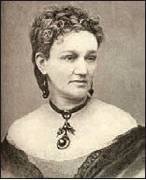‘Beast Butler’ couldn’t intimidate her
MARK POWELL’S
HOLY COW!
HISTORY
This is the 80th anniversary of that cinematic masterpiece, Gone With the Wind . Everyone knows it’s the story of …
This item is available in full to subscribers.
Subscribe to continue reading. Already a subscriber? Sign in
Get 50% of all subscriptions for a limited time. Subscribe today.
Please log in to continueNeed an account?
|
‘Beast Butler’ couldn’t intimidate her
MARK POWELL’S HOLY COW! HISTORY
This is the 80th anniversary of that cinematic masterpiece, Gone With the Wind. Everyone knows it’s the story of strong-willed, hard as nails Scarlett O’Hara. While she was fictitious, the real Civil War South was filled with many strong-willed, hard as nails women. One South Carolina native in particular proved it by enduring brutal imprisonment. This is what happened when she (supposedly) laughed at a funeral.
Eugenia Levy was born into a prominent Jewish family in Charleston in 1819. Headstrong even as a child, she always spoke out for the things she loved. And she loved nothing more than the South.
Married at age 16 to Philip Phillips, a successful Mobile, Ala., attorney, she moved there and set about bearing nine children. In 1852, Phillips was elected to Congress and the family went to Washington. Staying there after his single term in office, his law practice flourished.
But there was a division between the two. Phillips supported the Union while Eugenia was practically a cheerleader for secession. And in her typical style, she made sure everyone knew it.
On August 21, 1861, Union troops burst in the Phillips’ home and searched it. Although they couldn’t find any evidence of treason, the former Congressman was kept under house arrest while Eugenia and two daughters were confined in the dingy attic of a Capitol Hill home with other pro-Southern women. A few weeks later they were given what we call “shock probation” today and told to leave town. By year’s end the family was settled in New Orleans. There, in the deepest of the Deep South, Philip Phillips thought his wife could stay out of trouble.
He thought wrong.
The Union soon launched an assault on the lower Mississippi and within months the Phillips were living under Northern rule again. Once more, Eugenia didn’t take it lying down.
New Orleans was commanded by General Benjamin Butler of Massachusetts, a incompetent who held high rank due to politics instead of merit. He was vile, brutal, and was so widely suspected of personal corruption he was called “Spoons” for all the silver he allegedly stole. He was also viciously anti-Semitic. On top of that, he treated the people of New Orleans as conquered subjects, and they—especially the women—loathed him in return.
Things got so bad, he issued the infamous General Order No. 28 which decreed, “…when any female shall, by word, gesture, or movement, insult or show contempt for any officer or soldier of the U.S., she shall be regarded and held liable to be treated as a woman of the town plying her avocation.” In other words, a prostitute. The insult earned him the despised nickname “Beast Butler.”
Given all that, it was only natural that Butler and Eugenia were on a collision course. And it wasn’t long in coming.
One day, soldiers solemnly carried a Union officer’s coffin to city hall for his funeral. The Phillips lived next door. As the procession passed the Phillips house, Eugenia and some children were seen laughing on a terrace. She was quickly hauled before Butler and the two had a knock-down, drag-out verbal fight.
Eugenia insisted the laughter came from a birthday party she was hosting for a child. Butler didn’t buy it. “I’m not calling you a woman of the town,” he huffed. “But I am calling you an uncommonly vulgar one and I sentence you to Ship Island of the duration of the war.”
Ship Island is a dreary, desolate strip of sand in the Gulf of Mexico off Biloxi, Miss. Eugenia’s accommodations there made the Washington attic look like the lap of luxury. An old railroad boxcar, and later an abandoned post office, was her home. Butler finally allowed her husband to send her beans and spoiled beef; she would have died without it.
Her husband pulled strings and Eugenia was eventually released. Rejoining her husband in New Orleans that September, when he first saw her he was so shaken he looked like he’d seen a ghost.
Butler’s plan to make an example of Eugenia backfired. She became the toast of the South for staying true to her convictions despite the hardships she was forced to endure.
But just to be on the safe side, Philip Phillips moved her to Georgia and made sure she kept a low profile for the rest of the war.
Email Mark with comments, questions or suggestions at jmp.press@gmail.com .
Other items that may interest you










Comments
No comments on this item Please log in to comment by clicking here